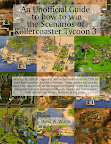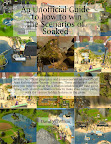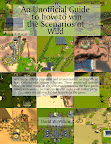Each time I start a year, I have already compiled a list, months ago with about 6000 entered of what happened from 1788 to 1837. My first step now (It took several trials to get this down to a science) is to cut out the specific year I will work on and paste it into its own spreadsheet to work with. When I worked on the entire spreadsheet, sometimes inserting a line, with all the graphics I had begun to place, took a long time. Working on each year alone, is a lot faster.
I now diligently look through each of these to find entries that I did not come across on the internet, and other printed lists. It is possible that there are places that have more listings for each year. I have not found them. And when you go to the Timelines at the Regency Assembly Press page, there you will see all the graphical references as well. Something that I did not find anywhere else.
| Year
|
Month Day
|
Event
|
| 1830
|
Jan 7
|
1st US Railroad Station opened in Baltimore.
|
| 1830
|
Jan 7
|
Albert Bierstadt, painter (US landscapes), was born in Germany.
|
| 1830
|
Jan 8
|
Gouverneur Kemble Warren (d.1882), Major Gen (Union volunteers), was born.
|
| 1830
|
Jan 8
|
Hans von Bulow, pianist, virtuoso conductor, was born in Dresden.
|
| 1830
|
Jan 13
|
There was a great fire in New Orleans. It was thought to be set by rebel slaves.
|
| 1830
|
Jan 28
|
Daniel Auber’s opera “Fra Diavolo,” premiered in Paris.
|
| 1830
|
Feb 3
|
Robert Cecil, Marquess of Salisbury (C), British PM (1885-1902), was born.
|
| 1830
|
Feb
|
In France the Comedie-Francaise performed “Hernani,” a play whose hero swears vengeance against Don Carlo, i.e. King Charles. The play “provoked a brouhaha that heralded the July Revolution.”
|
| 1830
|
Mar 4
|
V. Bellini’s opera “I Capuleti e i Montecchi” premiered in Venice.
|
| 1830
|
Mar 16
|
London reorganized its police force, Scotland Yard.
|
| 1830
|
Apr 5
|
Alexander Muir, poet (Maple Leaf Forever), was born in Lesmahagow, Scotland.
|
| 1830
|
Apr 6
|
The Church of Jesus Christ of Latter-day Saints was organized by Joseph Smith and five others in Fayette, Seneca County, N.Y. Joseph Smith published the “Book of Mormon” in Palmyra, New York. He claimed that the manuscript was based on ancient golden plates revealed to him by the angel Moroni and written in the language of the Egyptians. The book records the journey of an ancient Israelite prophet, Lehi, and his family to the American continent some 2,000 years ago. [see 1827, 1831]
|
| 1830
|
Apr 9
|
Edward Muybridge, pioneered study of motion, photography, was born in England. In 2002 Rebecca Solnit authored “River of Shadows: Eadweard Muybridge and the Technological Wild West.”
|
| 1830
|
May 1
|
Mother (Mary Harris) Jones, reformer and labor organizer, was born. [see 1837]
|
| 1830
|
May 3
|
The 1st regular steam train passenger service started.
|
| 1830
|
May 5
|
John B. Stetson, American hat maker, was born. He gave his name to the wide-brimmed cowboy hat.
|
| 1830
|
May 18
|
Karl Goldmark Keszthely, composer, was born in Hungary.
|
| 1830
|
May 18
|
Edwin Beard Budding of England signed an agreement for the manufacture of his invention, the lawn mower. He adopted the rotary blade in the cloth industry to grass.
|
| 1830
|
May 20
|
The 1st railroad timetable was published in the newspaper Baltimore American.
|
| 1830
|
May 20
|
Dr. Hyde patented a fountain pen.
|
| 1830
|
May 24
|
“Mary Had a Little Lamb,” was written. Sarah Josepha Hale of Newport, N.H., published a collection of poems “Poems for Our Children,” that included “Mary Had a Little Lamb.” [see 1815]
|
| 1830
|
May 24
|
The first passenger railroad in the United States began service between Baltimore and Elliott’s Mills, Md. The first regularly scheduled railroad passenger service was pulled by the engine named “The Best Friend of Charleston.”
|
| 1830
|
May 25
|
Jules de Geyter, Belgian poet (International), was born.
|
| 1830
|
May 28
|
Congress authorized Indian removal from all states to western prairie.
|
| 1830
|
Jun 26
|
Britain’s King George IV (b.1762) died. George Augustus Frederick of Hanover, Prince of Wales, was called Prinny by his friends. He was succeeded by his brother, King William IV. In 2002 Steven Parissien authored “George IV.” The crown passed to George’s brother who became William IV.
|
| 1830
|
Jul 4
|
William Sublette, a trapper and explorer, named Independence Rock, Wyo., when he celebrated his 54th birthday there.
|
| 1830
|
Jul 5
|
The French occupied the North African city of Algiers.
|
| 1830
|
Jul 10
|
Camille Pissarro (d.1903), French impressionist painter, was born on the island of St. Thomas in the West Indies. He studied as a child in Paris but spent his early years as an artist in Caracas, Venezuela. In Paris he became a devotee of the neo-Impressionist technique.
|
| 1830
|
Jul 15
|
3 Indian tribes, Sioux, Sauk & Fox, signed a treaty giving the US most of Minnesota, Iowa & Missouri.
|
| 1830
|
Jul 18
|
Uruguay adopted a liberal constitution.
|
| 1830
|
Jul 26
|
King Charles X of France issued five ordinances limiting the political and civil rights of citizens.
|
| 1830
|
Jul 27
|
A second Revolution broke out in Paris opposing the laws of Charles X.
|
| 1830
|
Jul 28
|
Revolution in France replaced Charles X with Louis Philippe.
|
| 1830
|
Jul 29
|
Liberals led by the Marquis of Lafayette seized Paris in opposition to the king’s restrictions on citizens’ rights.
|
| 1830
|
Jul 31
|
Charles X of France was forcibly ejected from the French throne. [see Jul 28]
|
| 1830
|
Jul to Aug
|
In Britain the June 26 death of Britain’s King George IV triggered elections. Polling took place in July and August and the Tories won a majority over the Whigs, but division among Tory MPs allowed Earl Grey to form an effective government and take the question of electoral reform to the country the following year.
|
| 1830
|
Aug 4
|
Plans for the city of Chicago were laid out.
|
| 1830
|
Aug 9
|
Louis-Philippe formally accepted the crown of France, following abdication of Charles X, last brother of guillotined Louis XVI. He was the son of the opportunistic Duke d’Orleans, first cousin to the late king, who renounced his royal heritage and called himself plain Phillipe Egalite. Louis-Philippe voted for his cousin’s death in 1793, but followed him to the guillotine in 1794.
|
| 1830
|
Aug 25
|
The “Tom Thumb” steam locomotive, designed by Peter Cooper, ran its famous race with a horse-drawn car. The horse won because the engine, which had been ahead, broke down. [see Sep 18]
|
| 1830
|
Aug 25
|
Belgium rebelled against Netherlands.
|
| 1830
|
Aug 28
|
“Tom Thumb,” the 1st locomotive in US, ran from Baltimore to Ellicotts Mill.
|
| 1830
|
Sep 9
|
N.J.
|
| 1830
|
Sep 15
|
British MP William Huskisson (b.1770) was killed under the wheels of the “Rocket” train at the opening of the Liverpool and Manchester Railway. He was the 1st person to be run-over by a railroad train.
|
| 1830
|
Sep 18
|
Tom Thumb” the first locomotive built in the United States, lost a nine-mile race in Maryland to a horse. [see Aug 25]
|
| 1830
|
Sep 18
|
William Hazlitt (b.1778), in his time England’s finest essayist, died. “A nickname is the heaviest stone that the devil can throw at a man.” In 2008 Duncan Wu authored “William Hazlitt: The First Modern Man.”
|
| 1830
|
Sep 20
|
The National Negro Convention convened in Philadelphia with the purpose of abolishing slavery.
|
| 1830
|
Oct 15
|
Helen Maria Hunt Jackson (d.1885), writer and poet, was born in Amherst, Massachusetts. Her 1881 non-fiction work, “A Century of Dishonor,” raised concerns about the treatment of Native Americans. Jackson, a lifelong friend of Emily Dickinson, worked on a government investigation of the treatment of Mission Indians. Her 1884 novel Ramona was also about the plight of Indians in California. “Wounded vanity knows when it is mortally hurt; and limps off the field, piteous, all disguises thrown away. But pride carries its banner to the last; and fast as it is driven from one field unfurls it in another.” “It is the weakness and danger of republics, that the vices as well as virtues of the people are represented in their legislation.”
|
| 1830
|
22-Nov
|
Prime Minister of the United Kingdom: Charles Grey, 2nd Earl Grey
|
| 1830
|
Nov 8
|
Oliver Otis Howard (d.1909), Major General (Union volunteers), was born.
|
| 1830
|
Nov 13
|
Oliver Wendell Holmes published “Old Ironsides.”
|
| 1830
|
Nov 15
|
In Britain Lord Grey used his majority in the House of commons to defeat the government of Arthur Wellesley, the Duke of Wellington. Wellington resigned the next day.
|
| 1830
|
Dec 5
|
Christina Rossetti (d.1894), poet (Winter Rain, Passing Away), was born in London. She wrote devotional verse, curious fairy tales and category defying poems. Her brothers, William Michael and Dante Gabriel, helped found the Pre-Raphaelite Brotherhood, whose professed aim was to revive the purity and vividness they admired in late medieval art. Her story is told by Jan Marsh in “Christina Rosetti: A Writer’s Life.” “Better by far you should forget and smile, Than that you should remember and be sad.”
|
| 1830
|
Dec 10
|
Emily Dickinson (d.1886), American poet, was born in Amherst, Massachusetts. Perhaps the best-known woman poet in the United States today, Dickinson led a rather secluded life. After studying at Amherst Academy and then for one year at the Mount Holyoke Female Seminary, she lived with her family and never married. The few friends that Emily Dickinson did have received regular gifts of poetry and letters from her. Although she wrote poetry constantly, she never seriously pursued publishing her work. Only about 10 poems were published in her lifetime, and those were submitted for publication without her permission. After her death in 1886, more than 1,700 of her poems, which she had bound together in bundles, were discovered and published. “They say that God is everywhere, and yet we always think of Him as somewhat of a recluse.”
|
| 1830
|
Dec 17
|
Simon Bolivar (b.1783), called “the Liberator,” died of TB in Santa Marta, in Colombia. He was a leader in Venezuela for struggles of national independence in South America. He formed a Gran Colombia that lasted 8 years, but broke apart into Venezuela, Colombia and Ecuador. In 2006 John Lynch authored “Simon Bolivar: A Life.”
|
| 1830
|
Dec 20
|
An international conference declared the dissolution of the Kingdom of the Netherlands effectively recognizing the independence of Belgium.
|
| 1830
|
Dec 26
|
Gaetano Donizetti’s opera “Anna Bolena,” premiered in Milan.
|
| 1830
|
|
George IV dies; William IV becomes king.
|
| 1830
|
|
Sturt charts the Murray River.
|
| 1830
|
|
The Liverpool and Manchester Railway begins first regular commercial rail service.
|
| 1830
|
|
With China’s great population growth, unemployment has risen and there has been a shortage of land, creating peasant unrest. China is still the leader in manufacturing output (real rather than per capita), but its share is slipping from 32.8 percent in 1750 to 29.8 percent. India’s share since 1750 has fallen from 24.5 percent to 17.6 percent. Britain, with a fraction of the population of either China or India, has increased its share in this period from 1.9 to 4.3 percent. The U.S. share is 2.4 percent.
|
| 1830
|
|
France has reneged in paying its bill for wheat bought from Algeria. A new era of European imperialism begins with Charles X sending an invasion force of 36,000 troops to Algeria, claiming that he was responding to the insult to his ambassador. The invasion is described as a civilizing mission and a mission to abolish slavery and piracy — a response to Algeria’s reputation in France for having attacked the ships of Christian nations during past centuries and for an estimated 25,000 European slaves in Algeria, including women in the harems.
|
| 1830
|
|
Businessmen and common people loathe Charles X, who has returned to absolutism, including dissolving parliament. The barricades go up in the streets of Paris. Charles X is frightened and rather than fight goes into exile, back to Britain. Parliament returns, creates a constitutional monarchy and elects a new king, Louis-Philippe.
|
| 1830
|
|
Violence erupts across Germany. Rent, tax and military records are burned. People want bread or are annoyed by higher prices for food, military conscription and in places by feudal dues. In Brunswick, Grand Duke Karl flees and a liberal constitution is created. The king of Saxony grants his subjects a liberal constitution. In Hesse-Kassel a constitution and a unicameral legislature are created.
|
| 1830
|
|
In Britain, the first edition of Charles Lyell’s Principles of Geology is published and will revolutionize the age-of-earth concepts.
|
| 1830
|
|
The first railway station opens in the United States — in Baltimore Maryland.
|
| 1830
|
|
President Andrew Jackson signs the Indian Removal Act, which rips the Cherokee and other eastern tribes from their homes and banishes them to areas west of the Mississippi River.
|
| 1830
|
|
Joseph Smith Jr. of New York organizes the Church of Jesus Christ of Latter-day Saints.
|
| 1830
|
|
In England the lawn mower is invented.
|
| 1830
|
|
A Frenchman patents a sewing machine.
|
| 1830
|
|
Simón Bolivar dies disappointed and regretting that Spain did not allow people in its American colonies to develop self-government within a framework of institutions as had Britain with its colonists.
|
| 1830
|
|
Ingres made his pencil study for “La Grande Odalisque. “
|
| 1830
|
|
Franz Kreuger painted his portrait of Russia’s Empress Alexandra Fedorovna.
|
| 1830
|
|
Sheldon Peck, American New England artist, painted the portrait of a revolutionary soldier or dignitary. The portrait had been found in a local auction and was bought for $25. In 1997 it was valued at about $250,000.
|
| 1830
|
|
George Earl Bulwer-Lytton (Edward George Bulwer-Lytton) published his novel “Paul Clifford.” The opening line was “It was a dark and stormy night,” and led to the 1982 Bulwer-Lytton Fiction Contest for bad writing. Lytton also coined the phrase “the pen is mightier than the sword.”
|
| 1830
|
|
Stendhal (1783-1842), the nom de plume of French author Henri Beyle, authored “The Red and the Black,” the story of a peasant who reaches for upward mobility through the favors of two mistresses.
|
| 1830
|
|
Charles Lyell published the first edition of his “Principles of Geology.”
|
| 1830
|
|
The First Symphony by Berlioz had its premiere.
|
| 1830
|
|
In Pennsylvania George Brinton began constructing a home later called Rondelay in Chadds Ford. After extensive renovations the 6 bedroom home on 38.9 acres was listed for sale in 1998 for $2.9 mil.
|
| 1830
|
|
Andrew Jackson, seventh President of the US, signed the Indian Removal Act of 1830. The act banished the Cherokee and other eastern tribes to beyond the Mississippi.
|
| 1830
|
|
Pres. Andrew Jackson forced Thomas L. McKenney from his job as the 1st US superintendent of the Bureau of Indian Affairs. Jackson disagreed with McKenney’s opinion that “the Indian was, in his intellectual and moral structure, our equal.”
|
| 1830
|
|
Pres. Jackson named Roger Brooke Taney as US Attorney General.
|
| 1830
|
|
A year after leaving office as the sixth president of the United States, the Plymouth district of Massachusetts unexpectedly elected John Quincy Adams to the House of Representatives, where he served until he suffered a stroke on the House floor in 1848. He died two days later. Adams at the time enjoyed the distinction of having been the only son to follow his father to the presidency.
|
| 1830
|
|
Senator Daniel Webster said: “Liberty and Union, now and forever, one and inseparable!”
|
| 1830
|
|
The USS Constitution (aka Old Ironsides) was condemned as unseaworthy. The ship was saved by a poem by Oliver Wendell Holmes, a Harvard anatomy professor, that stirred up protests. “Oh, better that her shattered hulk / Should sink beneath the wave…”
|
| 1830
|
|
The US Naval Observatory in Washington became the official timekeeper for the United States.
|
| 1830
|
|
Commercial bottling operations for ketchup began in Boston.
|
| 1830
|
|
The yard was standardized at 36 inches. It had started out as the girth of a Saxon.
|
| 1830
|
|
The Bowie knife was first introduced.
|
| 1830
|
|
Samuel Morrill, a newspaper printer, cooked up a new ink in his kitchen in Andover, Mass., forming a company that ultimately become Sun Chemical. In 2004 it was the largest maker of ink in the world.
|
| 1830
|
|
A Frenchman patented a sewing machine.
|
| 1830
|
|
American alcohol consumption reached 7.1 gallons per capita.
|
| 1830
|
|
The non-Indian population of California was 4,256.
|
| 1830
|
|
There were 40 million buffalo in the US at this time. By 1890 the number was reduced to 1,000.
|
| 1830
|
|
Richard Lander, British explorer, completed Mungo Park’s journey down the Niger from Bussa to the mouth of the river in 5 months.
|
| 1830
|
|
Henry Philip Hope, a London banker, purchased the 45 carat blue diamond. It later began to be known as the “Hope Diamond.”
|
| 1830
|
|
A Massachusetts spice trading ship was seized by pirates in Sumatra. In 2001 “Drums of Quallah Battoo: Salem Pepper Traders and Sumatran Pirates” by Charles P Corn (d.2001) was to be published.
|
| 1830
|
|
1000 Albanian leaders were invited to meet with an Ottoman general who killed about half of them.
|
| 1830
|
|
Mayor de San Andres, Bolivia’s major university, was founded in La Paz.
|
| 1830
|
|
A French taxidermist stuffed an African Bushman from Botswana and took the body to Europe for exhibition. In 2000 the body was returned from a Spanish museum.
|
| 1830
|
|
In Germany the Altes Museum was designed by Karl Friedrich Schinkel in the center of Berlin.
|
| 1830
|
|
In Germany Michael Thonet (d.1871) started making bentwood furniture. He moved to Vienna in 1842 and in 1850 started making bentwood chairs for commercial use. His 5 sons joined the company and by 1856 it was known as Gebruder Thonet. In 1923 the company joined others to form Thonet-Kohn-Mundus and began making tubular steel furniture. It moved its headquarters to the US in 1940 and is still in business.
|
| 1830
|
|
The Gran Colombia union collapsed and Colombia, Ecuador and Venezuela became independent countries.
|
| 1830
|
|
Some sources say that the 1st pizzeria opened in Naples about this time. [see 1889]
|
| 1830
|
|
Katsushika Hokusai (1760-1849), Japanese artist, created his famous woodblock print “Beneath the Wave of Kanagawa” about this time.
|
| 1830
|
|
The government of Peru exempted guano from taxes. The commercial mining and export of the rich fertilizer soon followed.
|
| 1830
|
|
Nicholas I of Russia ruthlessly repressed the insurrection in Poland.
|
| 1830-1835
|
|
Tocqueville published his Democracy in America. In a democracy such as the United States, he said, private associations are permitted by the central government to perform quasi-governmental functions that take the brunt of governmental power and protect the people like a great umbrella spread out against a rainstorm. A nation without this crucial element in its makeup will be a more terrible tyranny than the world has ever seen.
|
| 1830-1837
|
|
Some 347 new banks were chartered in the US. The value of real estate rose 150%.
|
| 1830-1840
|
|
In St. Louis Henry Shaw made a fortune outfitting westward bound wagon trains. He retired at 40 and began to transform a wild prairie outside the city into magnificent gardens known later as The Missouri Botanical Garden (Shaw’s Garden).
|
| 1830-1840
|
|
Wine production began in Hunter Valley, north of Sydney
|
| 1830-1840
|
|
Thomas Babington Macaulay (1800-1859), English essayist, historian and politician, served as a member of the British Supreme Council in India.
|
| 1830-1840
|
|
Hokusai (1760-1849) made his “Thirty-Six Views of Mount Fuji during this decade. The wood blocks included “Under the Wave of Kanagawa,” “The Back of Mt. Fuji from Minobu River,” and “Winter Loneliness.” The last was inspired by a poem of Minamoto no Muneyuki Ason. Another series was titled “A Tour of Japanese Waterfalls.
|
| 1830-1840
|
|
Charles Wheatsone of London developed the English concertina with a range of three chromatic octaves.
|
| 1830-1840
|
|
Chair manufacturers started using metal for chair parts.
|
| 1830-1840
|
|
Don Vincente, a former Spanish monk, committed 8 murders for books owned by others.
|
| 1830-1840
|
|
The US Congress adhered to a gag rule that prohibited any consideration of any petition regarding the status of slavery or the slave trade on federal territory.
|
| 1830-1880
|
|
The art of creating a memorial wreath from the hair of a departed loved one was a popular Victorian mourning ritual.
|
| 1830-1850
|
|
The Pennsylvania German community made traditional hand-stitched show towels and most show towels date from this period. They were hung on a door in the main room of a house.
|
| 1830-1859
|
|
Alfred King worked as a jeweler and clockmaker in Chippenham, England, during this time. He signed his work “A. King.” His clocks fetch $2-3k.
|
| 1830-1862
|
|
Britain’s economy doubled in size over this period as increased productivity spread from cotton to other industries.
|
| 1830-1864
|
|
Private coins were manufactured in several areas of the US.
|
| 1830-1867
|
|
Alexander Smith, Scottish poet and essayist: “Christmas is the day that holds all time together.”
|
| 1830-1877
|
|
Some 12,500 convicts were locked in Tasmania during this period.
|
| 1830-1895
|
|
Lothar Meyer, German chemist, independently of Mendeleev discovered that if the chemical elements are arranged in a sequence according to their atomic weights, various chemical properties repeat periodically along the sequence.
|
| 1830-1897
|
|
In Brazil Antonio Vicente Mendes Maciel, aka Antonio Conselheiro, was born in Quixeramobim, Ceara. He founded the settlement of Canudos in Bahia that was destroyed by government forces. [see 1896]
|
| 1830-1917
|
|
Belva Ann Bennett Lockwood, American social reformer: “The glory of each generation is to make its own precedents.”
|
























































